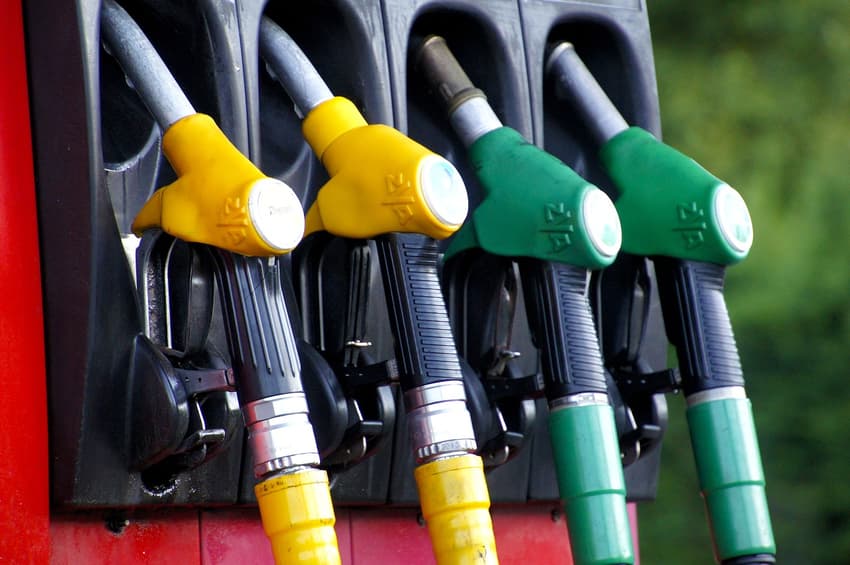How fuel prices in Austria are expected to rise next year

With carbon pricing going up in Austria starting on January 1st 2024, drivers are likely to have to pay a lot more per year to fill up their tanks next year. Here's what to expect.
What's happening?
With carbon pricing going up to €45 a tonne in the EU next year, the Austrian Association of Drivers (ÄRBO) projects the average petrol fill-up will cost about €7 more than it does now.
With numbers like that, a person who fills up weekly can expect to pay €252 extra over the course of a year. Someone who fills up every two weeks will be on the hook for another €182 per year.
How does the cost of fuel in Austria compare to other countries?
Filling up in Austria has generally been cheaper than in most other EU countries, going back at least 10 years according to a Der Standard investigation.
Fuel prices spiked last year, making it about five percent more expensive to tank up in Austria in 2022 than in the rest of the EU.
Prices have come down since though, and it is cheaper to get petrol in Austria now than in Germany, France or Italy, according to a comparison by the German Association of Drivers.
Austria sits at about the same price level for petrol as Czechia, Hungary, and Spain – with only Poland having significantly lower prices.
Thus a single small change to petrol prices in Austria could end up seeing the country’s drivers pay more than more of their European counterparts.
The average price of petrol currently sits at €1.65 a litre in Austria, or €1.66 for diesel. That’s still well below the €2.06 seen in the Netherlands for petrol and the €2.07 drivers in Sweden are paying for diesel.
Europe’s lowest prices – in Poland – see drivers there paying €1.49 for petrol and €1.45 for diesel.
READ ALSO: Cost of living: Why are petrol prices in Austria still so high?
Why is this happening?
The projected price increases come down primarily to the increasing price of carbon under the EU's emissions trading scheme - which taxes goods like petrol that emit carbon. Adhering to this pricing regime is part of how Austria and other EU countries meet their targets under the Paris Climate Agreement.
Comments
See Also
What's happening?
With carbon pricing going up to €45 a tonne in the EU next year, the Austrian Association of Drivers (ÄRBO) projects the average petrol fill-up will cost about €7 more than it does now.
With numbers like that, a person who fills up weekly can expect to pay €252 extra over the course of a year. Someone who fills up every two weeks will be on the hook for another €182 per year.
How does the cost of fuel in Austria compare to other countries?
Filling up in Austria has generally been cheaper than in most other EU countries, going back at least 10 years according to a Der Standard investigation.
Fuel prices spiked last year, making it about five percent more expensive to tank up in Austria in 2022 than in the rest of the EU.
Prices have come down since though, and it is cheaper to get petrol in Austria now than in Germany, France or Italy, according to a comparison by the German Association of Drivers.
Austria sits at about the same price level for petrol as Czechia, Hungary, and Spain – with only Poland having significantly lower prices.
Thus a single small change to petrol prices in Austria could end up seeing the country’s drivers pay more than more of their European counterparts.
The average price of petrol currently sits at €1.65 a litre in Austria, or €1.66 for diesel. That’s still well below the €2.06 seen in the Netherlands for petrol and the €2.07 drivers in Sweden are paying for diesel.
Europe’s lowest prices – in Poland – see drivers there paying €1.49 for petrol and €1.45 for diesel.
READ ALSO: Cost of living: Why are petrol prices in Austria still so high?
Why is this happening?
The projected price increases come down primarily to the increasing price of carbon under the EU's emissions trading scheme - which taxes goods like petrol that emit carbon. Adhering to this pricing regime is part of how Austria and other EU countries meet their targets under the Paris Climate Agreement.
Join the conversation in our comments section below. Share your own views and experience and if you have a question or suggestion for our journalists then email us at [email protected].
Please keep comments civil, constructive and on topic – and make sure to read our terms of use before getting involved.
Please log in here to leave a comment.